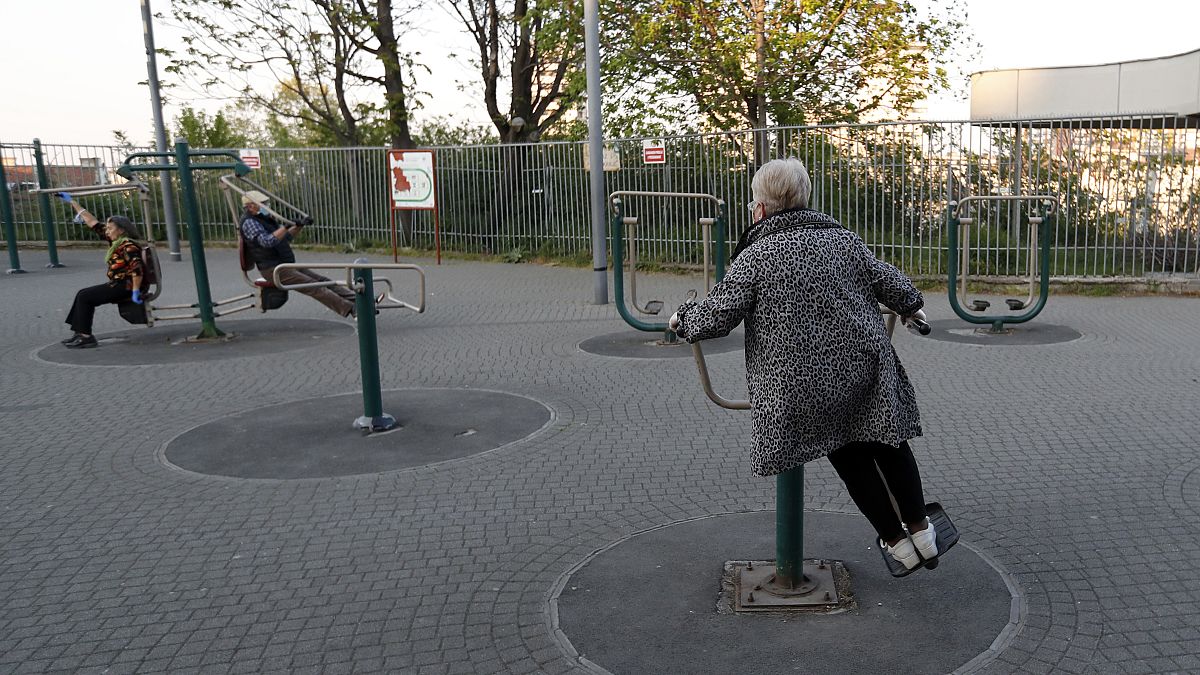The results of a new study make the case for starting a workout routine, even after a diagnosis, the authors say.
For new dementia patients, maintaining an exercise routine is tied to a 29 per cent lower risk of death in the years following diagnosis, according to a new study published in the British Journal of Sports Medicine.
There is currently no cure for dementia and treatments are limited, but certain lifestyle factors, like diet, exercise, and sleeping well, appear to play a role in slowing the progression of the brain-wasting disease.
The new analysis included more than 60,000 people in South Korea who were diagnosed with dementia between 2010 and 2016 and got medical checkups two years before and after their diagnosis.
Their average age was 74. Most people had Alzheimer’s disease, while 12.5 per cent had vascular dementia, which occurs when a stroke blocks an artery in the brain.
The researchers from Korean and US universities split the participants into four categories based on how regularly they worked out: those who maintained an exercise routine (about 3.5 per cent), those who started exercising during the study period (8 per cent), those who stopped exercising during that time (about 10 per cent), and those who didn’t exercise before their diagnosis – and didn’t change their habits afterwards (78 per cent).
During the nearly four-year follow-up, 27.3 per cent of people died – but those with a regular workout routine before and after their dementia diagnoses were much less likely to die from any cause.
Dementia patients who maintained their exercise routines had a 29 per cent lower risk of death, while those who started exercising after diagnosis had at least a 20 per cent reduced risk.
“We know that half of dementia cases across the world could be delayed or prevented through changes to lifestyle, but this study suggests how beneficial physical activity can be for those already experiencing dementia symptoms,” Dr Richard Oakley, associate director of research and innovation at the UK-based Alzheimer’s Society, told Euronews Health.
Any amount of physical activity helps
Notably, it didn’t seem to matter much whether someone worked out more intensely or if they did lower-level exercises, just that they got physical activity on a regular basis.
Even adding the equivalent of five minutes of brisk walking five days a week curbed the risk of death by 3 per cent, the study found.
“Our study highlights the potential clinical value of encouraging people with dementia to maintain or start physical activity, regardless of its intensity, after their dementia diagnosis,” the researchers said.
The study has some limitations. It’s an observational study, meaning the researchers can’t determine that exercise directly prolonged people’s lives.
It’s also possible that people with less severe dementia had an easier time staying physically active than those with more advanced stages of the disease, skewing the results.
Oakley said more research is needed to understand how physical activity might lower the risk of death.
Even so, the study authors said the findings could encourage people to begin working out in older age and especially after a dementia diagnosis, given other studies have also found a link between health outcomes and physical activity.
“There are many health benefits from keeping active – what’s good for the heart is good for the brain,” Oakley said.
Checkout latest world news below links :
World News || Latest News || U.S. News
The post Regular exercise may reduce death risks for new dementia patients appeared first on WorldNewsEra.

